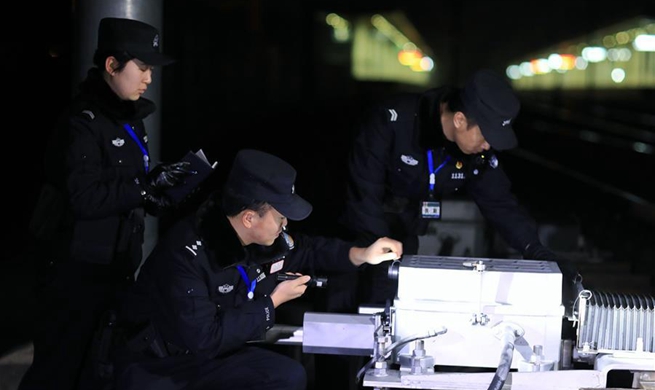ANKARA, Jan. 23 (Xinhua) -- The Turkish parliament adopted a new law last week after the film producers complain about failing to get "just" revenues out of ticket sales because of the strategies of cinema chains.
The "popcorn" dispute was revealed in December, when Turkey's most well-known filmmakers Cem Yilmaz and Yilmaz Erdogan announced the delay in screening their new movies to protest over the low shares that the producers can get from ticket sales.
They accused the cinemas of selling tickets with "popcorn-drink" packages at high prices to earn big profits, and that neither filmmakers nor consumers benefit from it.
Movie theaters in Turkey give half of their box office revenues to the producers. In recent years, the theaters started to offer discounts to those who buy popcorns and drinks along with tickets. Also the advertisements on the screen have become a major source of income for the cinemas.
The filmmakers argue that the theaters used promotions to keep the ticket prices low, but raised the prices of the popcorns. Therefore, the theaters get great profits from the popcorns and drinks, but the producers' income shrinks with the declining ticket revenues.
Mars Cinema Group, the major theater chain which owns 44 percent of the total movie theaters in the country, was particularly targeted by the producers.
Earlier, Turkish Cinema Exhibitors Association (SISAY) Executive Board Chairman Cenk Sezgin said meetings have been held between producers and nearly 100 association members including Mars, but Mars did not accept the producers' demands.
In an interview with daily Hurriyet, the company said it made the biggest investment in the movie industry in Turkey and that it is allowed to use any forms of promotions to boost sales.
A group of prominent Turkish filmmakers released a joint statement urging the Ministry of Culture and Tourism to regulate a fairer distribution of ticket sales and ad revenues.
The Ministry of Culture and Tourism proposed a new bill to the parliament, which addressed the "unfair practices launched under the name of promotions," said Mehmet Nuri Ersoy, Turkish minister of culture and tourism.
"What is important is to ensure that the revenues are evenly distributed. If you are reducing the prices of the ticket with the promotion, you are disrupting the equality in net revenue," he added.
According to the law approved by the parliament on Jan. 18, transparency is essential in the distribution of box office revenues, and subscriptions, promotions, campaigns, collective sales activities that include cinema tickets are banned.
In addition, the new law puts a limit to the maximum time of ads in the cinemas. Previously, the ads would last nearly 20 minutes. Shortening the duration will reduce the revenues the movie theaters get from the ads, and therefore, encourages them to make up for the declining revenues by increasing the ticket prices.
In 2018, 63.5 percent of the total box office revenues was made by Turkish movies, with a total of 68.9 million audiences. According to the data from the Turkish Statistical Institute, the average ticket price last year was 17.5 Turkish liras (3.6 U.S. dollars).
The new law has not been published in the official gazette and the producers are still delaying their new movies, Sezgin said, underlining that the problem has not been solved yet.

















